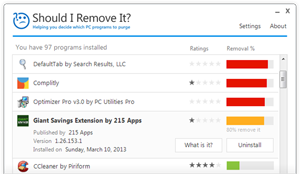Import table
advapi32.dll
InitializeSecurityDescriptor, AllocateAndInitializeSid, SetEntriesInAclW, SetSecurityDescriptorOwner, SetSecurityDescriptorGroup, SetSecurityDescriptorDacl, FreeSid, PerfDeleteInstance, PerfCreateInstance, PerfSetULongCounterValue, PerfStartProviderEx, PerfSetCounterSetInfo, PerfStopProvider, RegQueryInfoKeyW, RegEnumValueW, RegRestoreKeyW, AccessCheck, RegSetValueExW, RegDeleteTreeW, RegCopyTreeW, RegCreateKeyExW, OpenThreadToken, OpenProcessToken, AdjustTokenPrivileges, RegEnumKeyExW, RegQueryValueExW, ImpersonateLoggedOnUser, RevertToSelf, RegCloseKey, RegOpenKeyExW
api-ms-win-core-apiquery-l1-1-0.dll
ApiSetQueryApiSetPresence
api-ms-win-core-delayload-l1-1-1.dll
DelayLoadFailureHook, ResolveDelayLoadedAPI
api-ms-win-core-errorhandling-l1-1-0.dll
UnhandledExceptionFilter, GetLastError, SetUnhandledExceptionFilter
api-ms-win-core-errorhandling-l1-1-1.dll
GetLastError, UnhandledExceptionFilter, SetUnhandledExceptionFilter
api-ms-win-core-handle-l1-1-0.dll
CloseHandle
api-ms-win-core-heap-obsolete-l1-1-0.dll
LocalFree, LocalAlloc
api-ms-win-core-interlocked-l1-1-0.dll
InterlockedExchange, InterlockedCompareExchange, InterlockedIncrement, InterlockedDecrement
api-ms-win-core-interlocked-l1-1-1.dll
InterlockedIncrement, InterlockedExchange, InterlockedCompareExchange, InterlockedDecrement
api-ms-win-core-interlocked-l1-2-0.dll
InterlockedDecrement, InterlockedCompareExchange, InterlockedExchange, InterlockedIncrement
api-ms-win-core-processthreads-l1-1-1.dll
GetCurrentThreadId, TlsAlloc, TerminateProcess, OpenProcessToken, TlsFree, OpenThreadToken, TlsGetValue, GetCurrentProcess, GetCurrentProcessId, TlsSetValue, GetCurrentThread, GetProcessId, IsProcessorFeaturePresent
api-ms-win-core-processthreads-l1-1-2.dll
OpenProcessToken, OpenThreadToken, TlsGetValue, TlsFree, GetCurrentThreadId, GetProcessId, TerminateProcess, GetCurrentProcess, GetCurrentThread, TlsSetValue, TlsAlloc, GetCurrentProcessId
api-ms-win-core-profile-l1-1-0.dll
QueryPerformanceCounter
api-ms-win-core-registry-l1-1-0.dll
RegDeleteTreeW, RegCreateKeyExW, RegQueryInfoKeyW, RegEnumValueW, RegSetValueExW, RegRestoreKeyW, RegFlushKey, RegQueryValueExW, RegEnumKeyExW, RegCloseKey, RegOpenKeyExW
api-ms-win-core-synch-l1-1-1.dll
AcquireSRWLockShared, CreateEventW, InitializeSRWLock, ReleaseSRWLockShared, AcquireSRWLockExclusive, ReleaseSRWLockExclusive, WaitForSingleObject, Sleep, DeleteCriticalSection, EnterCriticalSection, LeaveCriticalSection, InitializeCriticalSection, SetEvent
api-ms-win-core-synch-l1-2-0.dll
AcquireSRWLockShared, Sleep, CreateEventW, InitializeSRWLock, ReleaseSRWLockShared, AcquireSRWLockExclusive, ReleaseSRWLockExclusive, WaitForSingleObject, DeleteCriticalSection, EnterCriticalSection, LeaveCriticalSection, InitializeCriticalSection, SetEvent
api-ms-win-core-sysinfo-l1-1-1.dll
GetTickCount, GetSystemTimeAsFileTime
api-ms-win-core-sysinfo-l1-2-0.dll
GetTickCount, GetSystemTimeAsFileTime
api-ms-win-core-sysinfo-l1-2-1.dll
GetTickCount, GetSystemTimeAsFileTime
api-ms-win-obsolete-kernelbase-l1-1-0.dll
LocalFree, LocalAlloc
api-ms-win-security-base-l1-1-0.dll
CheckTokenMembership, RevertToSelf, AdjustTokenPrivileges, AccessCheck, AllocateAndInitializeSid, FreeSid, ImpersonateLoggedOnUser
api-ms-win-security-base-l1-2-0.dll
FreeSid, RevertToSelf, AdjustTokenPrivileges, AllocateAndInitializeSid, CheckTokenMembership, AccessCheck, ImpersonateLoggedOnUser
api-ms-win-security-sddl-l1-1-0.dll
ConvertStringSecurityDescriptorToSecurityDescriptorW
api-ms-win-service-core-l1-1-0.dll
RegisterServiceCtrlHandlerExW, SetServiceStatus
api-ms-win-service-core-l1-1-1.dll
SetServiceStatus, RegisterServiceCtrlHandlerExW
api-ms-win-service-management-l1-1-0.dll
CloseServiceHandle, OpenServiceW, OpenSCManagerW
api-ms-win-service-management-l2-1-0.dll
NotifyServiceStatusChangeW
api-ms-win-service-private-l1-1-0.dll
I_ScSendPnPMessage, I_QueryTagInformation
api-ms-win-service-private-l1-1-1.dll
I_QueryTagInformation, I_ScSendPnPMessage
api-ms-win-service-winsvc-l1-1-0.dll
I_QueryTagInformation, I_ScValidatePnPService, I_ScSendPnPMessage
gpapi.dll
RegisterGPNotificationInternal, UnregisterGPNotificationInternal
kernel32.dll
InterlockedExchange, GetVersionExA, QueryPerformanceCounter, GetProcessHeap, HeapReAlloc, HeapFree, HeapAlloc, HeapDestroy, FindResourceExW, FindResourceW, LoadResource, OutputDebugStringA, GetCurrentThreadId, GetCurrentProcessId, SetUnhandledExceptionFilter, TerminateProcess, HeapSize, InterlockedCompareExchange, DeleteCriticalSection, UnhandledExceptionFilter, GetSystemTimeAsFileTime, LockResource, SizeofResource, CreateThreadpoolIo, RaiseException, InterlockedDecrement, InterlockedIncrement, AcquireSRWLockShared, ReleaseSRWLockShared, WaitForThreadpoolIoCallbacks, CloseThreadpoolIo, StartThreadpoolIo, CancelThreadpoolIo, RegisterWaitForSingleObjectEx, GetLastError, CreateEventW, CloseHandle, UnregisterWaitEx, LeaveCriticalSection, EnterCriticalSection, GetQueuedCompletionStatus, CreateThread, CreateIoCompletionPort, InitializeCriticalSection, PostQueuedCompletionStatus, Sleep, CreateFileW, LocalFree, LocalAlloc, GetCurrentProcess, GetCurrentThread, ProcessIdToSessionId, WaitForSingleObjectEx, CloseThreadpoolWork, SubmitThreadpoolWork, CreateThreadpoolWork, GetTickCount, DeviceIoControl, InitializeSRWLock, ReleaseSRWLockExclusive, AcquireSRWLockExclusive
kernelbase.dll
LoadStringByReference
msvcrt.dll
DllMain
ntdll.dll
NtPowerInformation, EtwEventRegister, EtwEventWrite, WinSqmIncrementDWORD, RtlCreateHeap, NtDeviceIoControlFile, RtlInitUnicodeString, NtAlpcConnectPort, RtlAllocateHeap, RtlFreeHeap, RtlCompareMemory, RtlNtStatusToDosError, RtlFreeUnicodeString, DbgPrint, RtlStringFromGUID, AlpcInitializeMessageAttribute, NtAlpcSendWaitReceivePort, NtAlpcCancelMessage, NtClose, AlpcGetMessageAttribute, RtlLookupElementGenericTableAvl, RtlEnumerateGenericTableAvl, RtlInitializeGenericTableAvl, RtlInsertElementGenericTableAvl, RtlDeleteElementGenericTableAvl, EtwEventUnregister, NtQueryInformationProcess, RtlDestroyHeap, NtAlpcQueryInformation, TpReleaseAlpcCompletion, TpWaitForAlpcCompletion, TpAllocAlpcCompletion, NtAlpcDisconnectPort
ole32.dll
CoUninitialize, CoInitializeSecurity, CoRevertToSelf, CoImpersonateClient, CoTaskMemFree, CoTaskMemAlloc, CoCreateInstance, CoInitializeEx
rpcrt4.dll
RpcServerRegisterIfEx, I_RpcBindingIsClientLocal, NdrServerCall2, UuidEqual, UuidToStringW, RpcStringFreeW, UuidFromStringW, RpcImpersonateClient, I_RpcBindingInqLocalClientPID, RpcServerUseProtseqEpW, RpcRevertToSelf, RpcServerUnregisterIfEx, RpcServerRegisterIf3, I_RpcOpenClientProcess
setupapi.dll
SetupDiDestroyDeviceInfoList, SetupDiGetClassDevsExW, SetupDiGetDeviceInterfaceDetailW, SetupDiEnumDeviceInterfaces, SetupDiGetClassDevsW
user32.dll
RegisterPowerSettingNotification, UnregisterDeviceNotification, UnregisterClassA, RegisterDeviceNotificationW
winsta.dll
WinStationSendWindowMessage
Export table
PtrUmpoDebug
PtrUmpoHandle
PtrUmpoOnAcPower
PtrUmpoProviderHandle
UmpoAllocate
UmpoAlpcSendPowerMessage
UmpoEnumerate
UmpoFree
UmpoGetActiveScheme
UmpoInternalAccessCheck
UmpoInternalCloseUserPowerKey
UmpoInternalConvertGuidToString
UmpoInternalDataAccessorToString
UmpoInternalGetActiveSchemeGuid
UmpoInternalIsSettingRangeDefined
UmpoInternalOpenGUIDSubKey
UmpoInternalOpenUserPowerKey
UmpoMain
UmpoNotificationHandler
UmpoNotifyKernelAllPowerPolicyChanged
UmpoNotifyKernelPowerPolicyChanged
UmpoReadFromSystemPowerKey
UmpoReadFromUserPowerKey
UmpoSetActiveScheme
UmpoTraceAdaptiveDimTimeout
UmpoWriteToUserPowerKey

